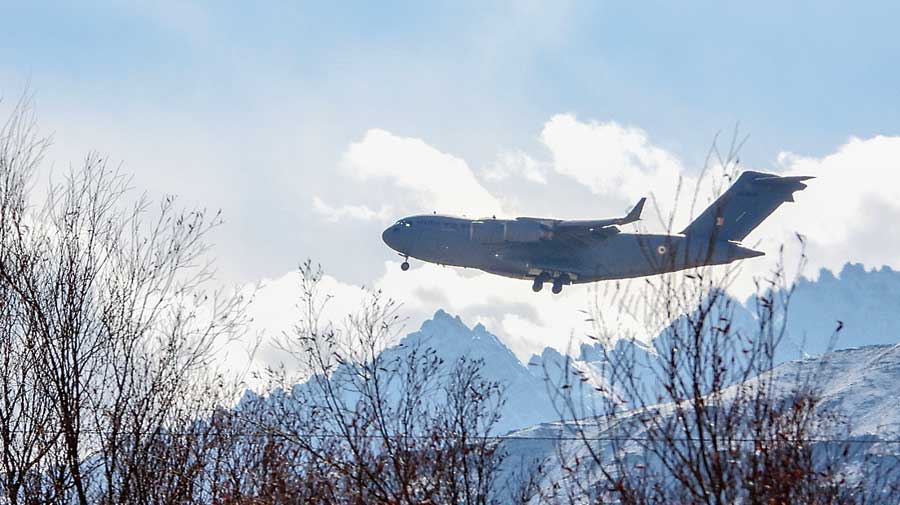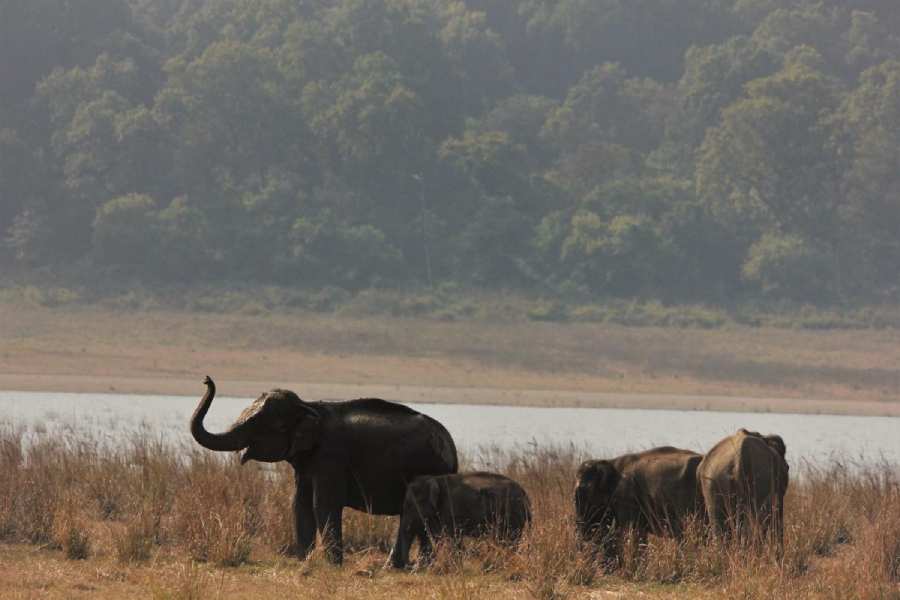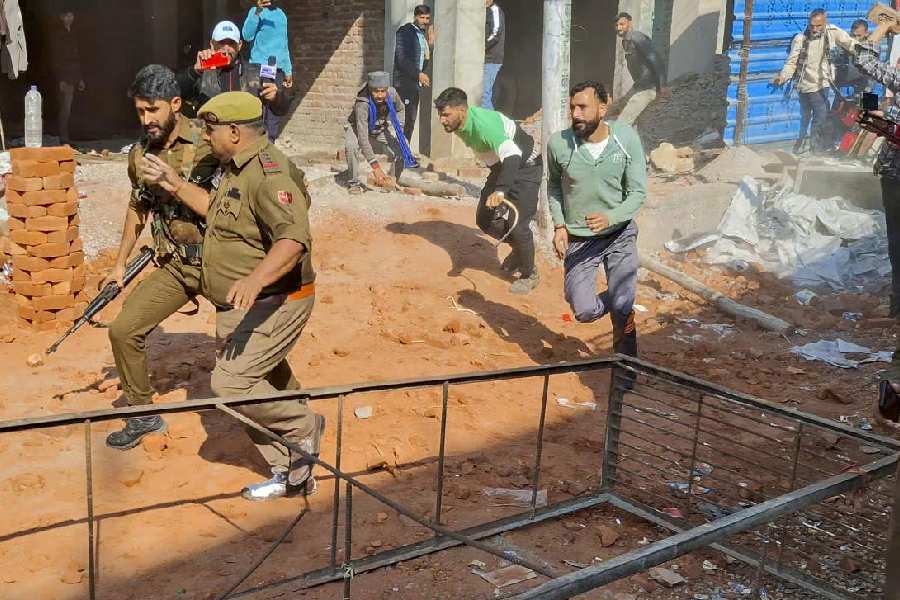Military veterans and security experts have expressed concern about the disengagement process agreed with China over the Pangong Lake and questioned India’s continued silence on the restoration of status quo as it was in April 2020 before the Chinese intrusion.
They are also asking why, under the pact announced by defence minister Rajnath Singh in Parliament on Thursday, India has agreed to stop patrolling territory that it controlled till now.
“Is there a deal within the deal? We talk about the ‘fog of war’; this seems to be the fog of peace and fog of disengagement,” a former lieutenant general said.
Rajnath told the Rajya Sabha that neither side would patrol its traditional areas on the Pangong Lake’s north and south banks until they have worked out all the modalities in diplomatic and military talks.
He did not mention any demand or agreement for restoration of status quo ante as of April 2020, but said the disengagement was aimed at restoring peace and tranquillity to the border areas.
Several veterans said that agreeing not to patrol areas claimed by India “amounts to further territory loss for India and a huge disadvantage tactically for its army”.
They said the Chinese army seemed to be trying “salami-slicing tactics” to impose a revised status quo. The term refers to an aggressor country claiming another’s territory and disputing the rival’s claim so forcefully that the territory becomes a “disputed” one. During the process of dispute resolution, the aggressor ends up getting a part of it.
Among the other questions the veterans said Rajnath had left unanswered:
Will the Indian troops also subsequently vacate the strategic heights on the Pangong Lake’s south bank that they had occupied last September after the Chinese attempted to alter the status “unilaterally”?
Why no mention of the Depsang Plains, operationally critical for the Indian army, where the Chinese are entrenched 18km inside India-claimed lines?
Will India press for disengagement at all the friction points?
“It’s shocking that we are withdrawing from territory we have controlled. Chinese troops have stopped us doing our normal patrolling at several friction points since May last year. And now we have agreed to step back from our claimed territory,” the retired lieutenant general who spoke to this newspaper said.
“This seems a very dangerous disengagement process. The restoration of peace and tranquillity does not mean restoration of status quo ante.”
Colonel Ajai Shukla (retd) tweeted: “On the heights above Pangong Lake, India is restricted to west of Finger 2/3. On the lake shore, China can now patrol till its claim line along Finger 4. India can no longer patrol till its claim line at Finger 8. Line of Actual Control (LAC) has effectively shifted west by 8km.”
He added: “Rajnath Singh @DefenceMinIndia is a careful man. In Parliament, he refrained from claiming that India’s core demand — restoration of the pre-April status — had been met. Instead, he claimed that the disengagement would ‘substantially restore’ the situation to pre-April 20.”
In the Pangong Lake area, India claims the territory till Finger 8 but the Chinese have advanced 8km up to Finger 4 from their erstwhile position at Finger 8 since May last year.
Rajnath told Parliament the Chinese army would return east of Finger 8 on the north bank and the Indian troops would go back to their Dhan Singh Thapa Post at Finger 3 on the north bank. Neither side will patrol this area.
Veteran Sushant Singh tweeted: “Two final points: One, the whole process is rather complex and uncertain, worsened by an environment of deep mistrust and hostility between the two sides. Two, anything other than return to status quo ante works in China’s favour (two steps forward, one step back kind of move).”












